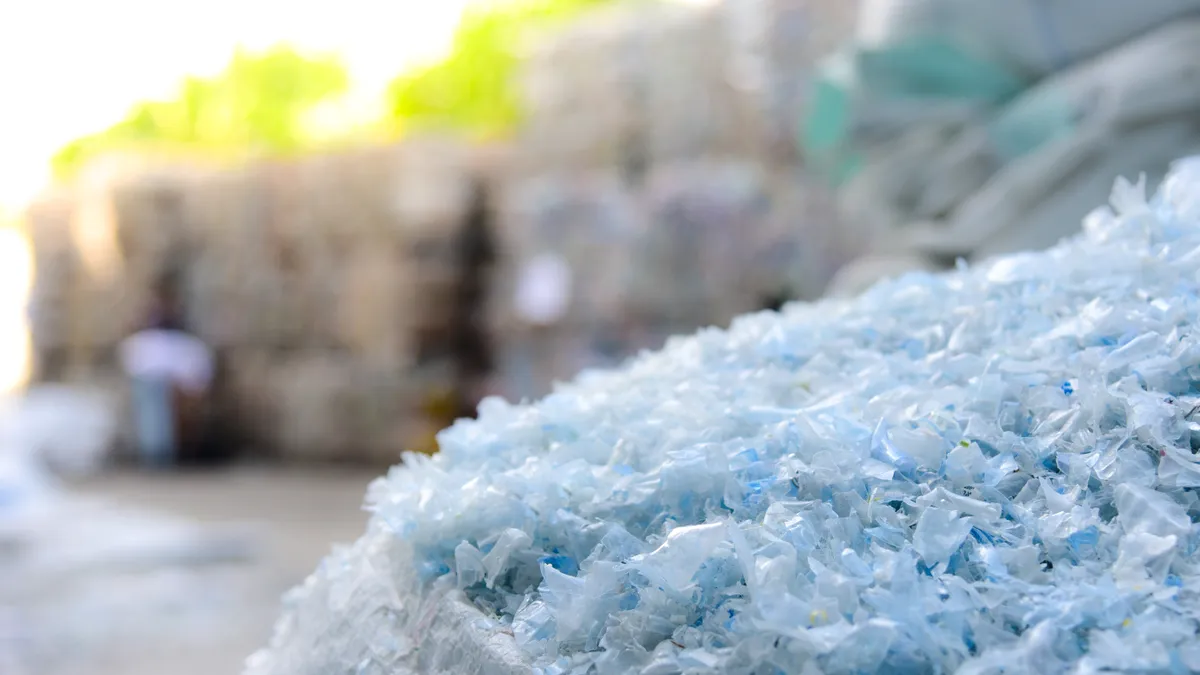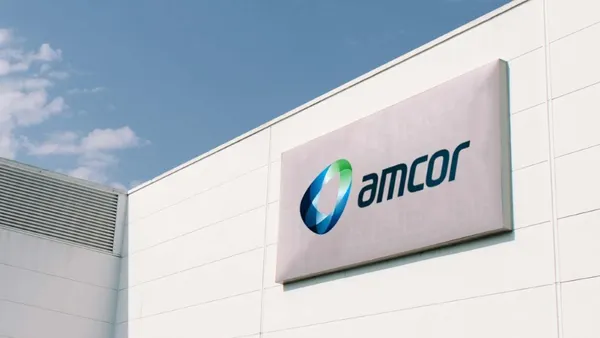Dive Brief:
- The U.S. Plastics Pact recently developed and shared its first guidance on the mass balance accounting model, a methodology to track recycled content, particularly when material is procured via chemical recycling. It’s part of the group’s updated PCR certification principles.
- USPP asserts that through the 2025 reporting cycle, it “recognizes and accepts the mass balance accounting model for PCR certification for both mechanically and chemically recycled plastic” under numerous conditions.
- Conditions include compliance with the ISO 22095 chain of custody standard, counting fuel outputs as yield loss in the recycling process, differentiating preconsumer and postconsumer recycled material, quarterly reconciliation and verification by a third party, among other parameters.
Dive Insight:
Numerous plastics companies and brands are interested in procuring recycled resin created through chemical recycling, an emerging processing method that breaks down plastics to the molecular level to become “building blocks” for new products.
According to America’s Plastics Makers, an initiative of the American Chemistry Council, “the mass balance approach measures the amount of plastic building block materials made from advanced recycling that are being mixed with traditional materials to create new products,” allowing companies to “track and communicate the use of materials derived from advanced recycling in their finished products.”
That’s notable given 2025 goals set forth by the U.S. Plastics Pact, part of the Ellen MacArthur Foundation’s Plastics Pact network, for companies and brands to eliminate problematic or unnecessary packaging; make all plastic packaging reusable, recyclable, or compostable; recycle or compost half of all plastic packaging; and incorporate an average of 30% recycled content or responsibly sourced bio-based content.
When the 2025 targets were set, “companies knew the direction that they needed to and wanted to go, but they didn't necessarily know the details of how they were going to get there,” said Crystal Bayliss, director of strategy and engagement at the U.S. Plastics Pact. “There's just lots of new topics and challenges and questions that are coming to light that we potentially didn't have visibility to a few years ago,” and USPP was getting lots of questions from members.
Some environmental groups have pushed back against chemical recycling’s momentum, saying the practice can have negative effects and perpetuates, rather than reduces, reliance on plastic. USPP’s certification principles more broadly call for “minimizing or eliminating important environmental and/or social negative impacts.” Additionally, “the process of recycling should not negatively impact marginalized communities” and should not release toxic byproducts.
The guidelines also emphasize that mass balance accounting “must not use the free allocation accounting method, as waste to fuel does not meet the U.S. Pact definition of material recycling,” going on to specify that USPP “recommends proportional allocation or polymers-only accounting methods for mass balance accounting but also accepts free allocation with a fuel exemption.”
Packaging companies are already citing certain mass balance calculations in their recycled plastic creations, including recent innovations from Eastman and Nestlé’s KitKat, for example. The Association of Plastic Recyclers and numerous environmental advocacy groups have spoken out against the use of mass balance, taking issue with a lack of “physical” recycled content.
The U.S. Plastics Pact, with a group of its participants, which it calls activators, worked on the principles for more than a year. Bayliss said that in reviewing chain of custody models, the group read ISO manuals, position papers and more.
“We just felt that because this was such a hot topic, and so many people had opinions on it, and they were very complex concepts, that we really needed to do the due diligence to dig into the details and to make sure we created a good position statement on that,” she said.
Bayliss said the group weighed where the industry is today and where they’d like to see it go in the future. USPP does still prefer certain other methods that provide more transparency and traceability, but ultimately its goal is to encourage demand for PCR, so long as mass balance accounting is being done correctly, including in the context of mechanical recycling.
“The team felt that it would be beneficial to have it as an option for mechanical recyclers also because we didn't want to unnecessarily penalize them with stricter record keeping or things like that,” Bayliss said. “It wasn't necessarily like we were trying to push them in that direction. We were just trying to present it as an option so that they weren't unfairly penalized against the chemical recyclers.”










